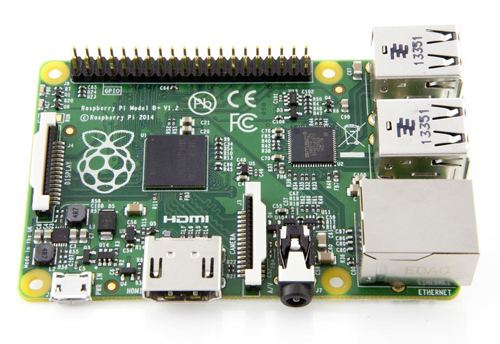-
Tips for becoming a good boxer - November 6, 2020
-
7 expert tips for making your hens night a memorable one - November 6, 2020
-
5 reasons to host your Christmas party on a cruise boat - November 6, 2020
-
What to do when you’re charged with a crime - November 6, 2020
-
Should you get one or multiple dogs? Here’s all you need to know - November 3, 2020
-
A Guide: How to Build Your Very Own Magic Mirror - February 14, 2019
-
Our Top Inspirational Baseball Stars - November 24, 2018
-
Five Tech Tools That Will Help You Turn Your Blog into a Business - November 24, 2018
-
How to Indulge on Vacation without Expanding Your Waist - November 9, 2018
-
5 Strategies for Businesses to Appeal to Today’s Increasingly Mobile-Crazed Customers - November 9, 2018
Raspberry Pi goes custom for industrial, commercial applications
These customization services are being launched in partnership with a company called Element 14, which has also handled the distribution of the Raspberry Pi since it first launched.
Advertisement
The existing models of the Raspberry Pi are all very capable and flexible tiny computers, with a range of connections allowing them to be customized to suit your needs. Element14’s custom Raspberry Pi development projects will be tap its Embest and AVID technology business units, and will be further supported by both Broadcom, whose processor is used on the SBC, and the Raspberry Pi Trading company.
Raspberry Pi founder Eben Upton designed the cheap computing board with students in mind, but when announcing the new customisation service on Tuesday, he said an increasing number of customers are putting Pi boards to work in factory automation and consumer products.
The firm revealed that it has 200 engineers ready to start customising orders.
OEMs can now take Raspberry Pi’s advantages of ease of programming and the ability to control and interact with physical devices and use them in commercial-scale devices.
As before, the software of the Pi is open source, but the hardware is proprietary; areas that might be considered for customisation would include configuration of the PCB, adding functions, re-designing interfaces or headers/pinouts, and altering memory configurations.
According to Upton, seven million Pi units have been sold in the last three years.
A handful of unsanctioned Raspberry Pi knock-offs have already appeared over the past couple of years, including various Orange Pi and Banana Pi flavors (shown below).
Just don’t expect to get this perk when you buy a single Raspberry Pi for yourself, or even a few hundred.
Advertisement
System builders, businesses, retailers and anyone else who wishes to order a bulk of Raspberry Pi PCs can now request to re-configure the board layout.




























